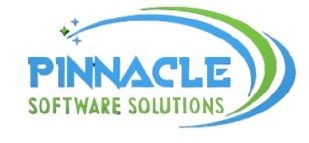Solutions for the Retail Industry
1. Customer Experience Enhancement
- Personalized Marketing: Utilize AI and data analytics to provide personalized recommendations and targeted marketing campaigns.
- Customer Loyalty Programs: Develop and manage loyalty programs that reward customers and encourage repeat business.
2. E-commerce Solutions
- Online Store Development: Create secure and user-friendly e-commerce platforms with integrated payment gateways.
- Mobile Commerce Apps: Develop mobile applications to enhance the shopping experience and provide customers with convenient access to products and services.
3. Inventory and Supply Chain Management
- Inventory Optimization: Implement solutions for real-time inventory tracking, demand forecasting, and automated replenishment.
- Supply Chain Visibility: Use IoT and blockchain technologies to enhance transparency and traceability in the supply chain.
4. In-Store Technology
- Smart Shelves and RFID: Implement smart shelves and RFID technology for accurate inventory tracking and reduced shrinkage.
- Self-Checkout Systems: Develop and integrate self-checkout solutions to improve the customer experience and reduce wait times.
5. Sales and Performance Analytics
- Point-of-Sale (POS) Systems: Implement advanced POS systems that provide sales insights and integrate with inventory management.
- Business Intelligence Tools: Develop dashboards and analytics tools to track sales performance, customer behavior, and market trends.
6. Customer Relationship Management (CRM)
- CRM Platforms: Implement CRM systems to manage customer interactions, track sales, and personalize marketing efforts.
- Customer Support Solutions: Develop omnichannel support systems to provide consistent customer service across various platforms.
Solutions for the Manufacturing Industry
1. Smart Manufacturing
- Industrial IoT (IIoT): Implement IoT solutions for real-time monitoring of equipment and production processes.
- Predictive Maintenance: Use AI and machine learning to predict equipment failures and schedule maintenance proactively.
2. Production Planning and Control
- ERP Systems: Develop enterprise resource planning systems that integrate production planning, inventory management, and supply chain operations.
- MES Solutions: Implement manufacturing execution systems (MES) to monitor and control production processes.
3. Quality Control and Assurance
- Automated Inspection: Use computer vision and machine learning to automate quality inspection and ensure product standards.
- Data Analytics: Implement analytics tools to monitor production quality and identify areas for improvement.
4. Supply Chain Optimization
- Logistics Management: Develop solutions for optimizing logistics and transportation, reducing costs, and improving delivery times.
- Supplier Collaboration: Implement platforms for better collaboration with suppliers, enhancing communication and efficiency.
5. Product Lifecycle Management (PLM)
- Design and Engineering Tools: Provide software for product design, simulation, and engineering, ensuring efficient development cycles.
- Collaboration Platforms: Implement tools that facilitate collaboration between teams and stakeholders throughout the product lifecycle.
6. Energy Management
- Energy Monitoring Systems: Develop systems for monitoring and optimizing energy usage in manufacturing facilities.
- Sustainability Analytics: Use data analytics to track and improve sustainability metrics, reducing environmental impact.
Implementation Strategy for Both Industries
1. Needs Assessment
- Conduct thorough assessments to understand the unique needs and challenges of each healthcare organization.
- Tailor solutions to address these specific requirements.
2. Customization and Integration
- Customize software solutions to fit the existing infrastructure and workflows of healthcare providers.
- Ensure seamless integration with current systems to avoid disruptions.
3. Data Management
- Implement strong data governance practices to ensure data quality and security.
- Ensure compliance with data protection regulations.
4. Training and Support
- Provide comprehensive training to healthcare staff to ensure they can effectively use the new solutions.
- Offer ongoing support and maintenance to ensure optimal performance.
5. Continuous Improvement
- Regularly update and enhance solutions to keep up with technological advancements and regulatory changes.
- Gather feedback from users to continuously improve the software.
By providing these tailored solutions, Pinnacle Software Solutions can help the retail and manufacturing industries improve operational efficiency, enhance customer experiences, and drive business growth and innovation.
